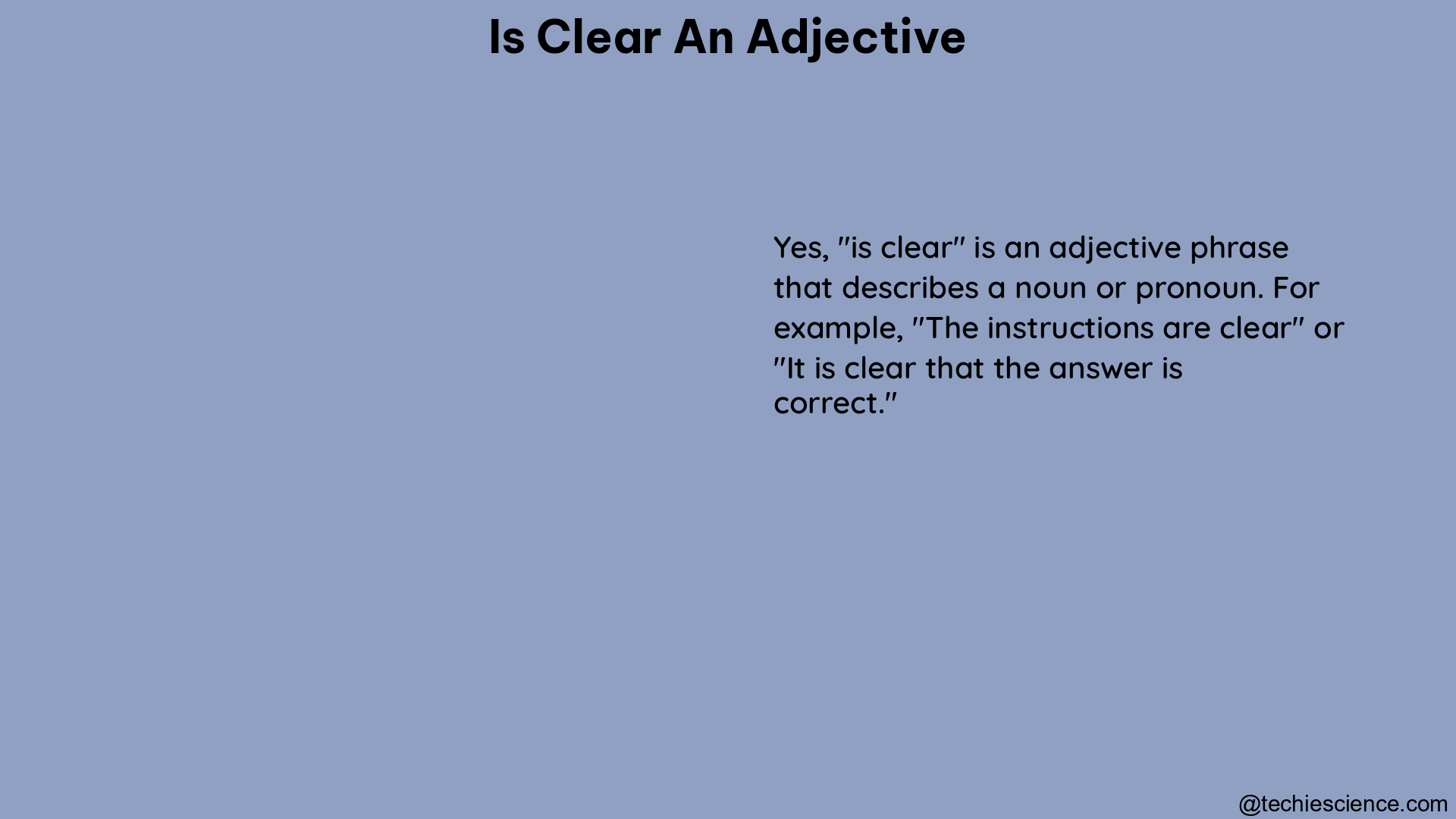Yes, “clear” is an adjective with several nuanced meanings and versatile applications in the English language. This comprehensive guide delves into the various definitions, grammatical specifications, theoretical explanations, and advanced hands-on details surrounding the use of “clear” as an adjective.
Definitions and Examples
1. Easy to Understand
- The instructions were clear and concise.
- She gave me clear and precise directions.
2. Obvious and Leaving No Doubt
- It was quite clear to me that she was lying.
- The evidence against him was clear.
3. Transparent or Free from Obstruction
- The water cleared after the mud had settled.
- The sky cleared after the rain.
4. Free from Blemishes or Defects
- She has clear skin.
- The glass was clear and free of any defects.
5. Free from Guilt or Suspicion
- They were finally clear of all suspicion.
- We are finally clear of debt.
6. Used to Express Certainty
- Are you clear about how to get there?
- It was clear that Leif was angry.
Grammatical Specifications

| Form | Example |
|---|---|
| Comparative | clearer |
| Superlative | clearest |
| Adverb | clearly |
| Noun | clearness |
| Verb | clear (to make clear, to free from obstruction, or to become clear) |
Theoretical Explanation
The adjective “clear” is a versatile word that can be used in various contexts to convey different meanings. Its core idea revolves around the concepts of transparency, lack of ambiguity, and freedom from obstruction or defects. Understanding the different uses of “clear” can help English students effectively communicate their ideas and express themselves with precision.
Advanced Hands-on Details
Idiomatic Expressions
- “Make oneself clear” (to express oneself clearly)
- “Be clear about something” (to be certain or explicit about something)
- “See one’s way clear to” (to find a way to do something)
Collocations
“Clear” often collocates with words like “instructions,” “directions,” “meaning,” “conscience,” and “profit” to convey specific meanings.
Phrasal Verbs
“Clear” is used in phrasal verbs like:
– “Clear out” (to remove unwanted items)
– “Clear up” (to make something clear or to resolve a confusion)
– “Clear off” (to leave or go away)
References
- Oxford Learners Dictionaries. (n.d.). Clear. Retrieved from https://www.oxfordlearnersdictionaries.com/us/definition/english/clear_1
- Merriam-Webster. (n.d.). Clear. Retrieved from https://www.merriam-webster.com/dictionary/clear
- Britannica Dictionary. (n.d.). Clear. Retrieved from https://www.britannica.com/dictionary/clear
- Dictionary.com. (n.d.). Clear. Retrieved from https://www.dictionary.com/browse/clear
- Cambridge Dictionary. (n.d.). Clear. Retrieved from https://dictionary.cambridge.org/us/dictionary/learner-english/clear

Hi…..I’m a graduate with a Bachelor’s degree in English Literature. I wish to do a Masters in the same field someday and continue my career in Academia.
Let’s connect through LinkedIn: